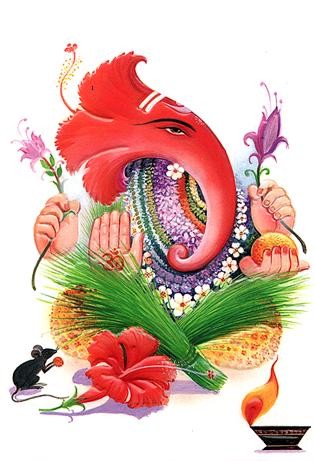Setting tunes to Telugu poems to promote culture
NIZAMABAD: This hot summer the staff of the government music schools and colleges are busy with the Kala Parichayam – a summer special camp organized by the Department of Cultural Affairs across the State – to develop awareness on cultural and art forms.
Following the suggestion of Chief Minister Y S Rajasekhar Reddy to give importance to propagation of Telugu apart from focusing on other languages in view of globalisation, the Cultural Affairs Department has included Telugu poems in the curriculum of its Kala Parichayam – a 40-day Summer Coaching Camp. The camp is being held from April 24 to June 2 across the State.
According to Director Cultural Affairs Department Rallabandi Kavitha Prasad, ‘‘50,000 students enrolled in Kala Parichayam this year in 800 centres across the State. We are charging a nominal fee of Rs 100 from each student.
The students will be exposed to both theoretical and practical training in various music and art forms like classical vocal music, classical instrumental music and classical dances, among others.
The students will be taught Tal, Raga, Sruthi, Laya among others and brief history, including contributions of renowned personalities to various music and dance forms.
Following the suggestion of Chief Minister Y S Rajasekhar Reddy to give importance to propagation of Telugu apart from focusing on other languages in view of globalisation, the Cultural Affairs Department has included Telugu poems in the curriculum of its Kala Parichayam – a 40-day Summer Coaching Camp. The camp is being held from April 24 to June 2 across the State.
According to Director Cultural Affairs Department Rallabandi Kavitha Prasad, ‘‘50,000 students enrolled in Kala Parichayam this year in 800 centres across the State. We are charging a nominal fee of Rs 100 from each student.
The students will be exposed to both theoretical and practical training in various music and art forms like classical vocal music, classical instrumental music and classical dances, among others.
The students will be taught Tal, Raga, Sruthi, Laya among others and brief history, including contributions of renowned personalities to various music and dance forms.
The course motivates them to learn further by joining regular classes of the music school.’’
To help the students learn Telugu poetry, the staff of the music schools and colleges are setting tunes to 20 poems by renowned poets కరుణశ్రీ(Karunasri), అల్లసాని పెద్దన్న (Allasani Pedanna), బొమ్మెర పోతన (Bommera Pothanna), తిక్కన్న సోమయాజులు (Thikkanna Somayajulu), విశ్వనాథ సత్యనారాయణ (Viswanatha Satyanarayana), శ్రీనాధుడు (Srinadhudu), దాసరథి (Dasarathi), జాషుఆ (Jashua), అప్ప కావ్యం (Appa Kaviyam), పీ. రాఘవ రాజు (P Raghava Raju), తెనాలి రామకృష్ణ (Tenali Ramakrishna) and కృష్ణ / భాస్కర/ సుమతి శతకములు (Krishna/ Bhaskara/ Sumathi/ Dasarathi sathakams).
‘‘Setting tunes to Telugu poems is an unexpected new assignment in our career and now we are back in schools approaching Telugu teachers, holding discussions on setting tunes to the poems for creating interest amongst the student community.
Out of 20 poems included in the curriculum, six are popular and we are setting tunes for the rest,’’ said a music teacher.
Venkateshwara Sharma, Telugu teacher in ZP High School of Manoharabad village of Jakranpally Mandal in the district, opined that different poems must be taught based on the language teaching procedures and attributed the evergreen popularity of Guurjada Appa Rao’s ‘Puthadi bomma purnamma’ to the same. He felt that poems must be included as a separate subject at the primary level and enough classes allocated for it.
‘‘Two mega cultural events – one organized by the International Cultural Organization and the other Nandi Natakotsavam by the State Government in the multi-linguistic district of Nizamabad – could not have any positive impact due to non-involvement of literary lovers,’’ observed Konda Raja Sekhar Goud, Telugu pandit of ZPHS School in Borgaon (P) village of Nizamabad Mandal and district secretary for Zilla Sahithi Sanghala Samakya, Nizamabad.
The Cultural Affairs Director said a monitoring team will tour the State to evaluate the ongoing Kala Parichayam programme.
Out of 20 poems included in the curriculum, six are popular and we are setting tunes for the rest,’’ said a music teacher.
Venkateshwara Sharma, Telugu teacher in ZP High School of Manoharabad village of Jakranpally Mandal in the district, opined that different poems must be taught based on the language teaching procedures and attributed the evergreen popularity of Guurjada Appa Rao’s ‘Puthadi bomma purnamma’ to the same. He felt that poems must be included as a separate subject at the primary level and enough classes allocated for it.
‘‘Two mega cultural events – one organized by the International Cultural Organization and the other Nandi Natakotsavam by the State Government in the multi-linguistic district of Nizamabad – could not have any positive impact due to non-involvement of literary lovers,’’ observed Konda Raja Sekhar Goud, Telugu pandit of ZPHS School in Borgaon (P) village of Nizamabad Mandal and district secretary for Zilla Sahithi Sanghala Samakya, Nizamabad.
The Cultural Affairs Director said a monitoring team will tour the State to evaluate the ongoing Kala Parichayam programme.
Courtesy: NewIndPress



1 Comments:
fitflops shoes
ugg boots
rolex replica watches
ugg outlet
ugg boots
nike factory outlet
kate spade sale
ugg boots
cheap nfl jerseys
oakley sunglasses
2017.8.23
Post a Comment
<< Home